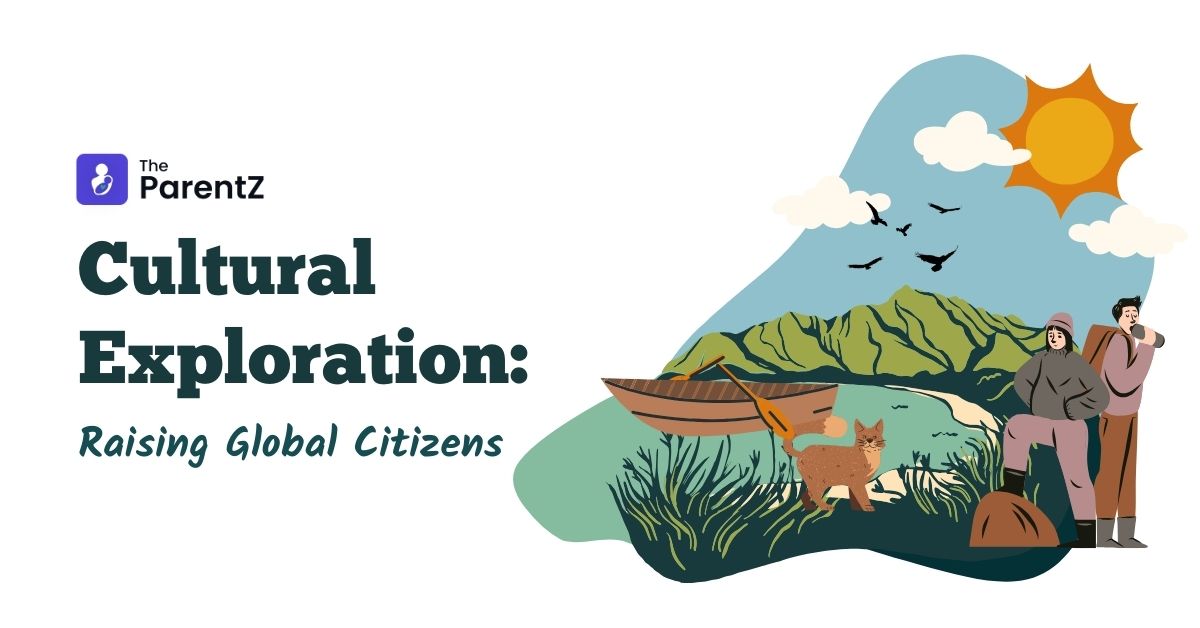In this interconnected world, raising culturally aware and global-minded children has become the need of the hour. And its importance cannot be accentuated enough. But how do you raise global citizens? Well, there are several ways to do so.
Before that, it is important to know what global citizens are. A global citizen can be referred to as someone who understands the broader aspects of his part in the world. Inculcating these values in your kids from a young age would go a long way.
Moreover, having appreciation for different cultures, empathy, and compassion for people from around the world will help your kids learn to appreciate and embrace diversity. Additionally, research by UNESCO indicates that exposure to diverse cultures and languages boosts cognitive development, critical thinking skills, and cultural competence in kids.
Read below this article to find out some of the best ways in which you can raise globally aware kids.
4 Tips for Raising Globally Minded Kids
Cultural exploration involves exploring diverse cultures, traditions, languages, and customs within their own community and on a global level, both. From cultivating curiosity to guiding them to create cultural connections, below are some of the best ways that can indeed be helpful in raising global citizens.
Reading Books
Yes, you read it right. Despite being the simplest, it is one of the most effective ways to ignite curiosity in kids. Of course, travelling to every country across the world wouldn’t be possible, both due to time and financial constraints.
However, the world of books will not put boundaries on the places your kids will love to know about. You can easily find non-fiction books exploring the different places of the world at libraries, local bookstores, or various online book-selling communities.
Learning foreign languages
Encouraging your child to learn foreign languages is certainly a fantastic way to gain the essence of diversity on a global scale. Not only does learning a new language give plenty of opportunities for social interactions with people from diverse backgrounds, but it also gives a better understanding of the respective culture.
Furthermore, learning a new language has been proven to improve self-confidence, the ability to multitask, and gives a career edge.
Exploring Art
There is no better way than to explore art when it comes to learning about a new culture. Unveiling the diverse forms of art, dance, architecture, and more to your kids can be a great idea for cultural exploration.
As parents, you can visit various art museums along with your kids to showcase several artistic pieces, such as sculptures, coins, artefacts, or portraits.
Alternatively, you can also explore various cultural festivals, theatre, or dance performances and guide your kids about the different aspects of dance forms, cultural expressions, etc.
Encouraging Cultural Connections
Last but not least, encourage your kids to engage in interactions between diverse communities to instill the values of tolerance and a broader perspective of the world.
Motivate them to take part in cultural exchange programmes or volunteer. You can also host some small cultural programmes at home. Every little step begins at home.
Let them initiate conversations and make friends with kids from other religious backgrounds. This will give them the opportunity to explore, learn, and willingly accept diverse social communities.
Conclusion
Cultural exploration is a transformative journey that opens doors for new connections, perspectives, ideas, and more. Storytelling, cultural festivals, and learning new languages are some of the little efforts that parents can put in to raise globally aware kids.





Be the first one to comment on this story.